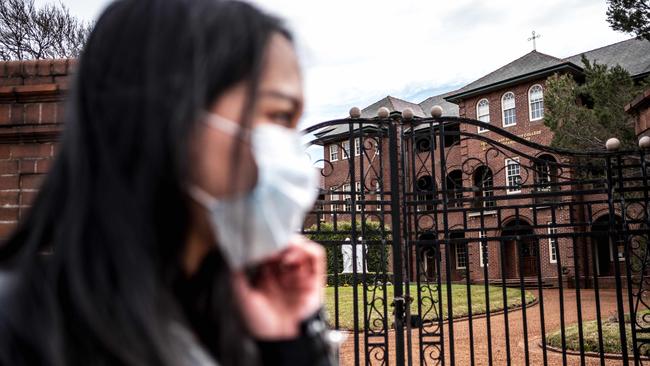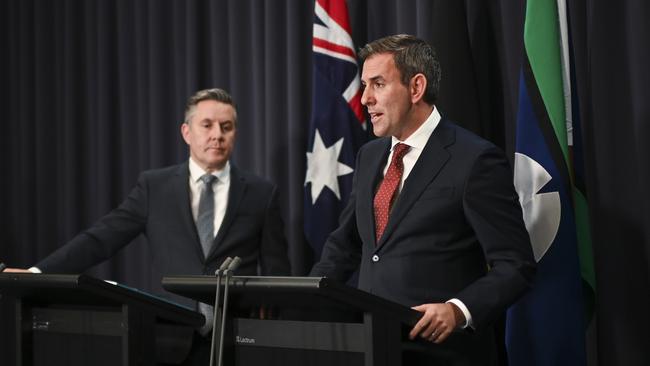Covid response ‘disproportionately’ affected children’s wellbeing, inquiry finds
Australia’s Covid pandemic response fixated on case numbers and lost sight of the broader mental-health impacts of lockdowns and school closures, a landmark inquiry has found.

Australia’s pandemic response fixated on case numbers and lost sight of the broader mental-health impacts of lockdowns and school closures, a landmark inquiry has found.
The report’s authors said the effect would unlikely be fully known “for some time”, with the government urged to invest more in mental-health support for children and young people as a priority.
But the report, released on Tuesday, applauded the establishment of the National Mental Health and Suicide Prevention Agreement made at national cabinet, which made Australia the first country to develop a pandemic mental-health strategy.
The report, led by senior public servant Robyn Kruk, epidemiologist professor Catherine Bennett and economist Angela Jackson, recommended better preparedness and co-ordination between governments, but also highlighted the impact of continuous lockdowns and school closures, particularly during a mental-health crisis that predated the pandemic.
“Increased social isolation, stress, anxiety, uncertainty, loss of control, disruption to daily routines and concerns for the wellbeing of family and loved ones created the conditions for either the onset of mental-ill health or deterioration of existing conditions,” the authors said.

“School closures and remote learning also led to increased engagement with social media, triggering weight and ‘body checking’ behaviours among some young people.”
The experts said research also suggested that lockdown-induced “lifestyle disruptions” caused changes in brain biology in children and young people, with a greater impact on females.
Governments were also not collecting real-time information on the wellbeing impacts of lockdowns or the effect on children of school closures, recommending a pre-planned system for remote learning if a future pandemic necessitated school closures, which should only be seen as a last-resort.
Health plans needed to be “more comprehensive” to include broader implications including mental-health support and better consideration of the needs of “at-risk groups”, the report found.
The pandemic “disproportionately” affected children, young people and Australians with existing mental-health issues, as well as businesses.
Essential workers, who “bore the brunt” of the pandemic, also experienced higher rates of mental ill-health, as did Indigenous communities and older Australians.
“ … It is very likely these impacts will be felt for some time (and) it is clear these impacts were not appropriately considered given (lockdown, school closure) measures continued to be applied once the risk-benefit balance had shifted and proportionality was harder to argue,” the report found.
“This must not be repeated in a future health emergency.”
The federal government was praised, however, for its early recognition of the pandemic-induced mental-health crisis, and for introducing Medicare-funded support to help alleviate it in early 2020.
The creation of a 24/7 Covid mental wellbeing support service also received recognition as did the allocation of $48m in federal funding toward a national wellbeing plan in the first months of the pandemic in 2020.
But while funding and action was welcomed, the report said it was “not clear” how the mental health plan “helped to drive improvements”, urging for closer integration and co-ordination between governments and local health services in a future pandemic.







To join the conversation, please log in. Don't have an account? Register
Join the conversation, you are commenting as Logout